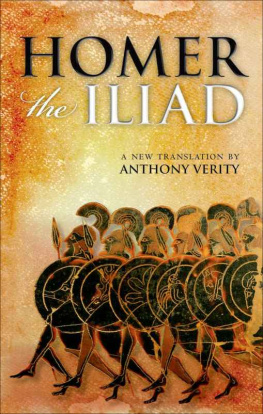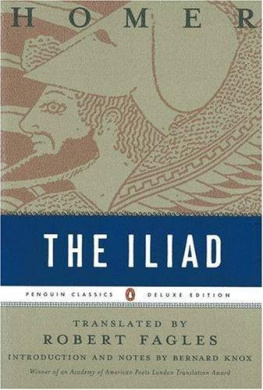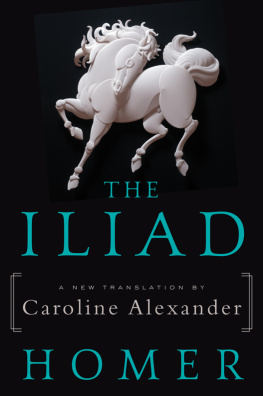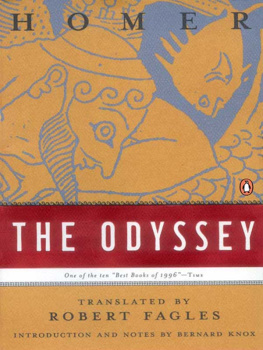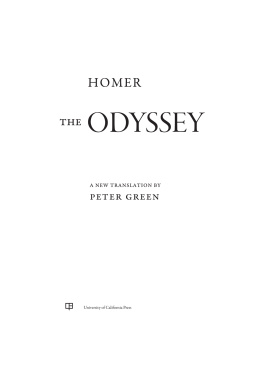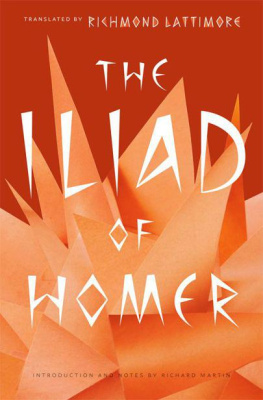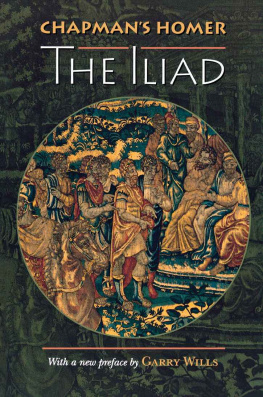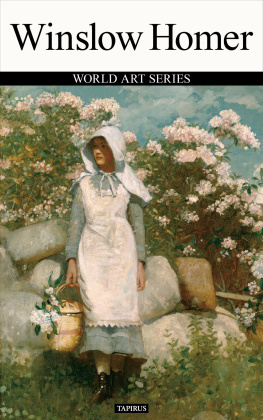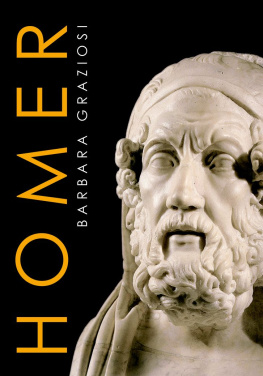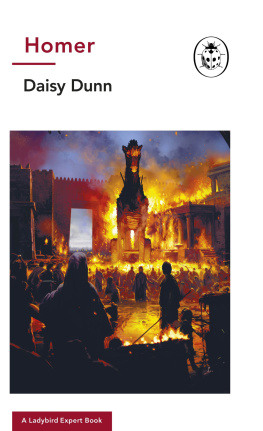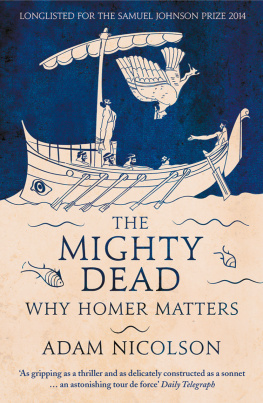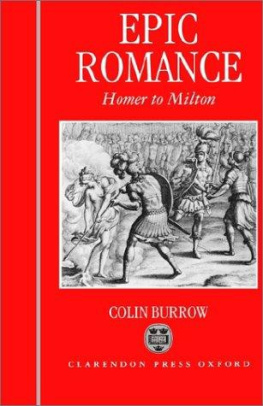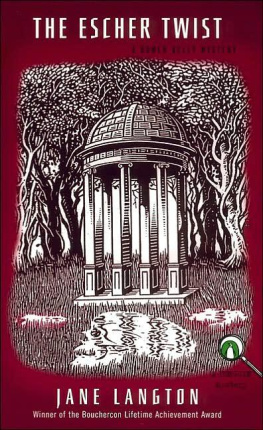Homer - The Illiad
Here you can read online Homer - The Illiad full text of the book (entire story) in english for free. Download pdf and epub, get meaning, cover and reviews about this ebook. genre: Home and family. Description of the work, (preface) as well as reviews are available. Best literature library LitArk.com created for fans of good reading and offers a wide selection of genres:
Romance novel
Science fiction
Adventure
Detective
Science
History
Home and family
Prose
Art
Politics
Computer
Non-fiction
Religion
Business
Children
Humor
Choose a favorite category and find really read worthwhile books. Enjoy immersion in the world of imagination, feel the emotions of the characters or learn something new for yourself, make an fascinating discovery.
- Book:The Illiad
- Author:
- Genre:
- Rating:5 / 5
- Favourites:Add to favourites
- Your mark:
- 100
- 1
- 2
- 3
- 4
- 5
The Illiad: summary, description and annotation
We offer to read an annotation, description, summary or preface (depends on what the author of the book "The Illiad" wrote himself). If you haven't found the necessary information about the book — write in the comments, we will try to find it.
Homer: author's other books
Who wrote The Illiad? Find out the surname, the name of the author of the book and a list of all author's works by series.
The Illiad — read online for free the complete book (whole text) full work
Below is the text of the book, divided by pages. System saving the place of the last page read, allows you to conveniently read the book "The Illiad" online for free, without having to search again every time where you left off. Put a bookmark, and you can go to the page where you finished reading at any time.
Font size:
Interval:
Bookmark:
Produced by Anne Soulard, Charles Franksand the Online Distributed Proofreading Team.
In the spring of 1862 I was induced, at the request of some personalfriends, to print, for private circulation only, a small volume of"Translations of Poems Ancient and Modern," in which was included thefirst Book of the Iliad. The opinions expressed by some competentjudges of the degree of success which had attended this "attempt toinfuse into an almost literal English version something of the spirit,as well as the simplicity, of the great original," [Footnote:Introduction to unpublished volume.] were sufficiently favourable toencourage me to continue the work which I had begun. It has affordedme, in the intervals of more urgent business, an unfailing, andconstantly increasing source of interest; and it is not without afeeling of regret at the completion of my task, and a sincerediffidence as to its success, that I venture to submit the result of mylabour to the ordeal of public criticism.
Various causes, irrespective of any demerits of the work itself, forbidme to anticipate for this translation any extensive popularity. First,I fear that the taste for, and appreciation of, Classical Literature,are greatly on the decline; next, those who have kept up theirclassical studies, and are able to read and enjoy the original, willhardly take an interest in a mere translation; while the Englishreader, unacquainted with Greek, will naturally prefer the harmoniousversification and polished brilliancy of Pope's translation; withwhich, as a happy adaptation of the Homeric story to the spirit ofEnglish poetry, I have not the presumption to enter into competition.But, admirable as it is, Pope's Iliad can hardly be said to be Homer'sIliad; and there may be some who, having lost the familiarity with theoriginal language which they once possessed, may, if I have at allsucceeded in my attempt, have recalled to their minds a faint echo ofthe strains which delighted their earlier days, and may recognize someslight trace of the original perfume.
Numerous as have been the translators of the Iliad, or of parts of it,the metres which have been selected have been almost as various: theordinary couplet in rhyme, the Spenserian stanza, the Trochaic orBallad metre, all have had their partisans, even to that "pestilentheresy" of the so-called English Hexameter; a metre wholly repugnant tothe genius of our language; which can only be pressed into the serviceby a violation of every rule of prosody; and of which, notwithstandingmy respect for the eminent men who have attempted to naturalize it, Icould never read ten lines without being irresistibly reminded ofCanning's
"Dactylics call'st thou them? God help thee, silly one!"
But in the progress of this work, I have been more and more confirmedin the opinion which I expressed at its commencement, that (whatevermay be the extent of my own individual failure) "if justice is ever tobe done to the easy flow and majestic simplicity of the grand old Poet,it can only be in the Heroic blank verse." I have seen isolatedpassages admirably rendered in other metres; and there are manyinstances in which a translation line for line and couplet for coupletnaturally suggests itself, and in which it is sometimes difficult toavoid an involuntary rhyme; but the blank verse appears to me the onlymetre capable of adapting itself to all the gradations, if I may usethe term, of the Homeric style; from the finished poetry of thenumerous similes, in which every touch is nature, and nothing isovercoloured or exaggerated, down to the simple, almost homely, styleof some portions of the narrative. Least of all can any other metre dofull justice to the spirit and freedom of the various speeches, inwhich the old warriors give utterance, without disguise or restraint,to all their strong and genuine emotions. To subject these to thetrammels of couplet and rhyme would be as destructive of their chiefcharacteristics, as the application of a similar process to theParadise Lost of Milton, or the tragedies of Shakespeare; the effectindeed may be seen by comparing, with some of the noblest speeches ofthe latter, the few couplets which he seems to have considered himselfbound by custom to tack on to their close, at the end of a scene or anact.
I have adopted, not without hesitation, the Latin, rather than theGreek, nomenclature for the Heathen Deities. I have been induced to doso from the manifest incongruity of confounding the two; and from thefact that though English readers may be familiar with the names ofZeus, or Aphrodite, or even Poseidon, those of Hera, or Ares, orHephaestus, or Leto, would hardly convey to them a definitesignification.
It has been my aim throughout to produce a translation and not aparaphrase; not indeed such a translation as would satisfy, with regardto each word, the rigid requirements of accurate scholarship; but suchas would fairly and honestly give the sense and spirit of everypassage, and of every line; omitting nothing, and expanding nothing;and adhering, as closely as our language will allow, ever to everyepithet which is capable of being translated, and which has, in theparticular passage, anything of a special and distinctive character. Ofthe many deficiencies in my execution of this intention, I am but tooconscious; whether I have been in any degree successful, must be leftto the impartial decision of such of the Public as may honour this workwith their perusal.
The favourable reception which has been given to the first Editions ofthis work, far exceeding my most sanguine hopes, affords a gratifyingproof how far, in my preface, I had overrated the extent to which thetaste for, and appreciation of, Classical Literature had declined. Itwill not, I hope, be thought extraordinary that some errors andinaccuracies should have found their way into a translation executed, Imust admit, somewhat hastily, and with less of the "limae labor" than Ishould have bestowed upon it, had I ventured to anticipate for it soextensive a circulation. My thanks, therefore, are due to thosecritics, who, either publicly or privately, have called my attention topassages in which the sense of the Author has been either incorrectlyor imperfectly rendered. All of these I have examined, and have availedmyself of several of the suggestions offered for their correction; anda careful revision of the whole work, and renewed comparison with theoriginal, have enabled me to discover other defects, the removal ofwhich will, I hope, render the present Edition, especially in the eyesof Classical Scholars, somewhat more worthy of the favour which hasbeen accorded to its predecessors.
ST. JAMES'S SQUARE, May, 1885.
In the war of Troy, the Greeks having sacked some of the neighbouringtowns, and taken from thence two beautiful captives, Chryseis andBriseis, allotted the first to Agamemnon, and the last to Achilles.Chryses, the father of Chryseis, and priest of Apollo, comes to theGrecian camp to ransom her; with which the action of the poem opens, inthe tenth year of the siege. The priest being refused, and insolentlydismissed by Agamemnon, entreats for vengeance from his god, whoinflicts a pestilence on the Greeks. Achilles calls a council, andencourages Calchas to declare the cause of it, who attributes it to therefusal of Chryseis. The King being obliged to send back his captive,enters into a furious contest with Achilles, which Nestor pacifies;however, as he had the absolute command of the army, he seizes onBriseis in revenge. Achilles in discontent withdraws himself and hisforces from the test of the Greeks; and complaining to Thetis, shesupplicates Jupiter to render them sensible of the wrong done to herson, by giving victory to the Trojans. Jupiter granting her suit,incenses Juno, between whom the debate runs high, till they arereconciled by the address of Vulcan.
Next pageFont size:
Interval:
Bookmark:
Similar books «The Illiad»
Look at similar books to The Illiad. We have selected literature similar in name and meaning in the hope of providing readers with more options to find new, interesting, not yet read works.
Discussion, reviews of the book The Illiad and just readers' own opinions. Leave your comments, write what you think about the work, its meaning or the main characters. Specify what exactly you liked and what you didn't like, and why you think so.


